Artists
Kama La Mackerel
Kama La Mackerel (born in Pamplemousses, Mauritius; lives in Tiohtià:ke / Mooniyang / Montreal, Canada) explores ideas about justice, care, love, and individual and collective emancipation in socially engaged and anti-colonial works. In their practice, which combines performance, photography, installation, dance, theatre, textile art, and poetry, they aim to heal the wounds of colonialism and multiply possibilities for being. La Mackerel addresses the plural state of violence done to bodies, identities, and marginalized cultures, and disarms them through queer and trans teachings and methodologies. In words, gestures, and images, they create assemblages imbued with resilience and resistance.
- Born
- Pamplemousses, Mauritius
- Countries / Nations
- Mauritius / Canada
- Lives
- Tiohtià:ke / Mooniyang / Montreal, Canada
- Website
- lamackerel.net
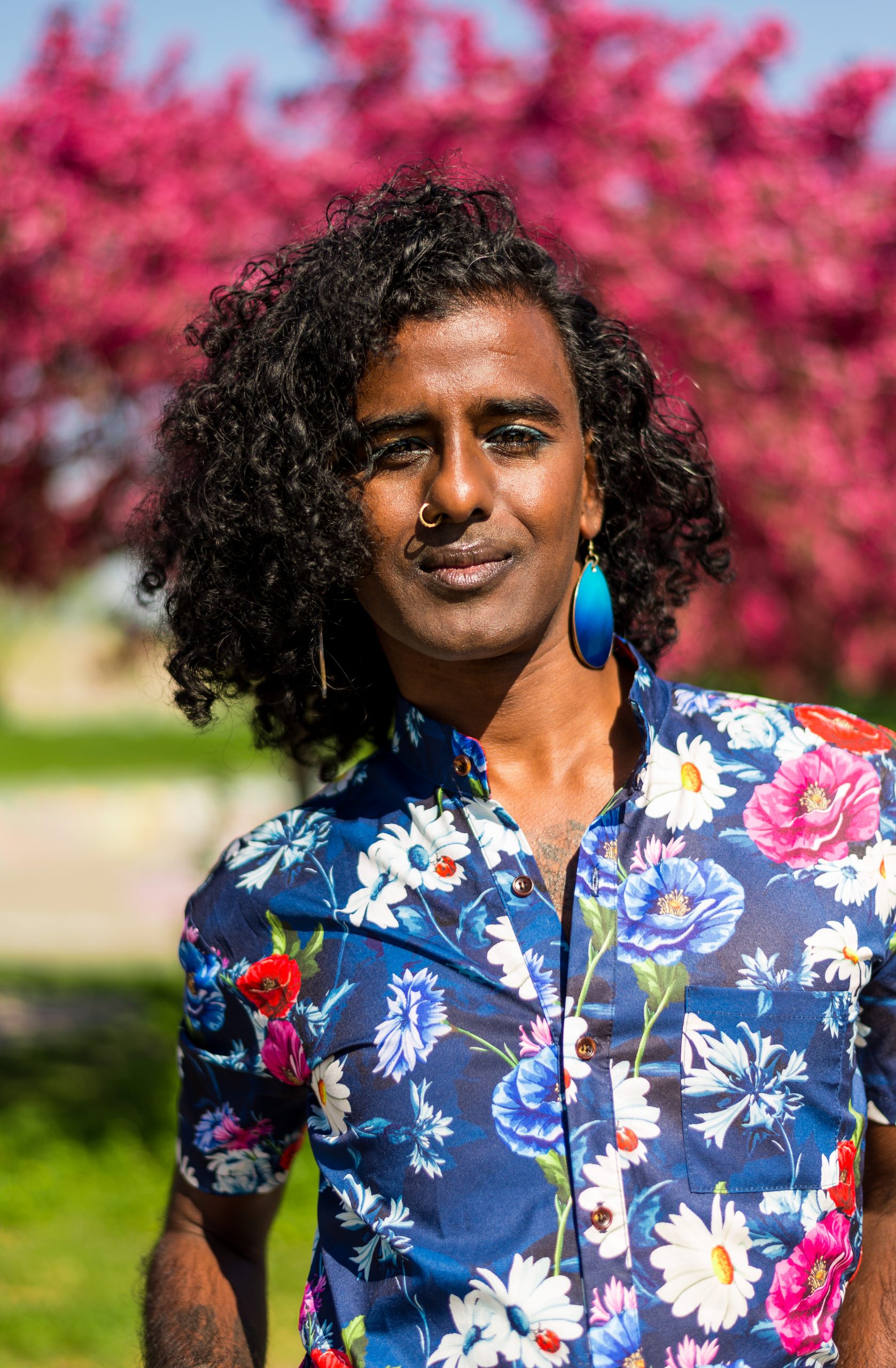
Works
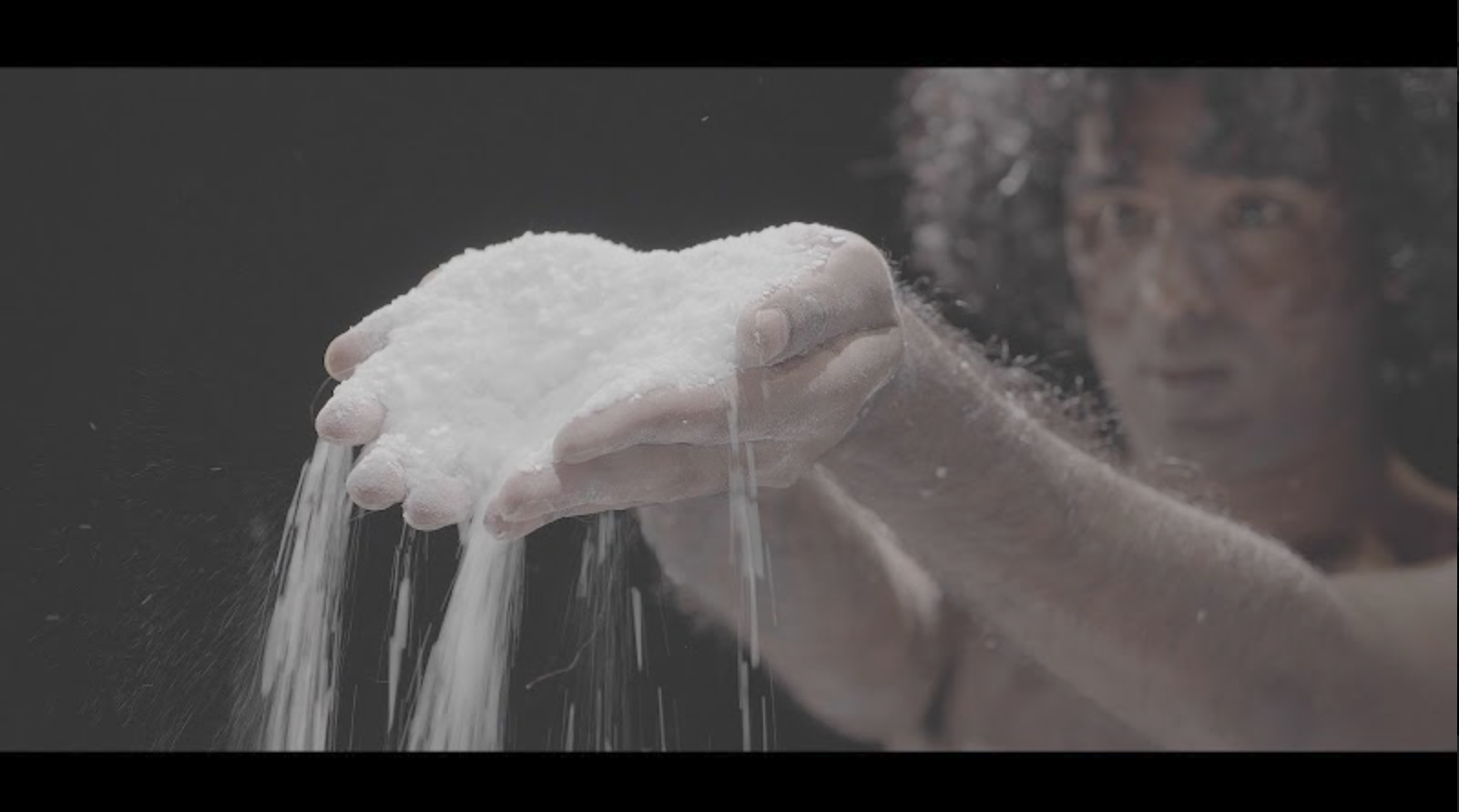
Kama La Mackerel, Your Body Is the Ocean, 2020, video still. Courtesy of the artist
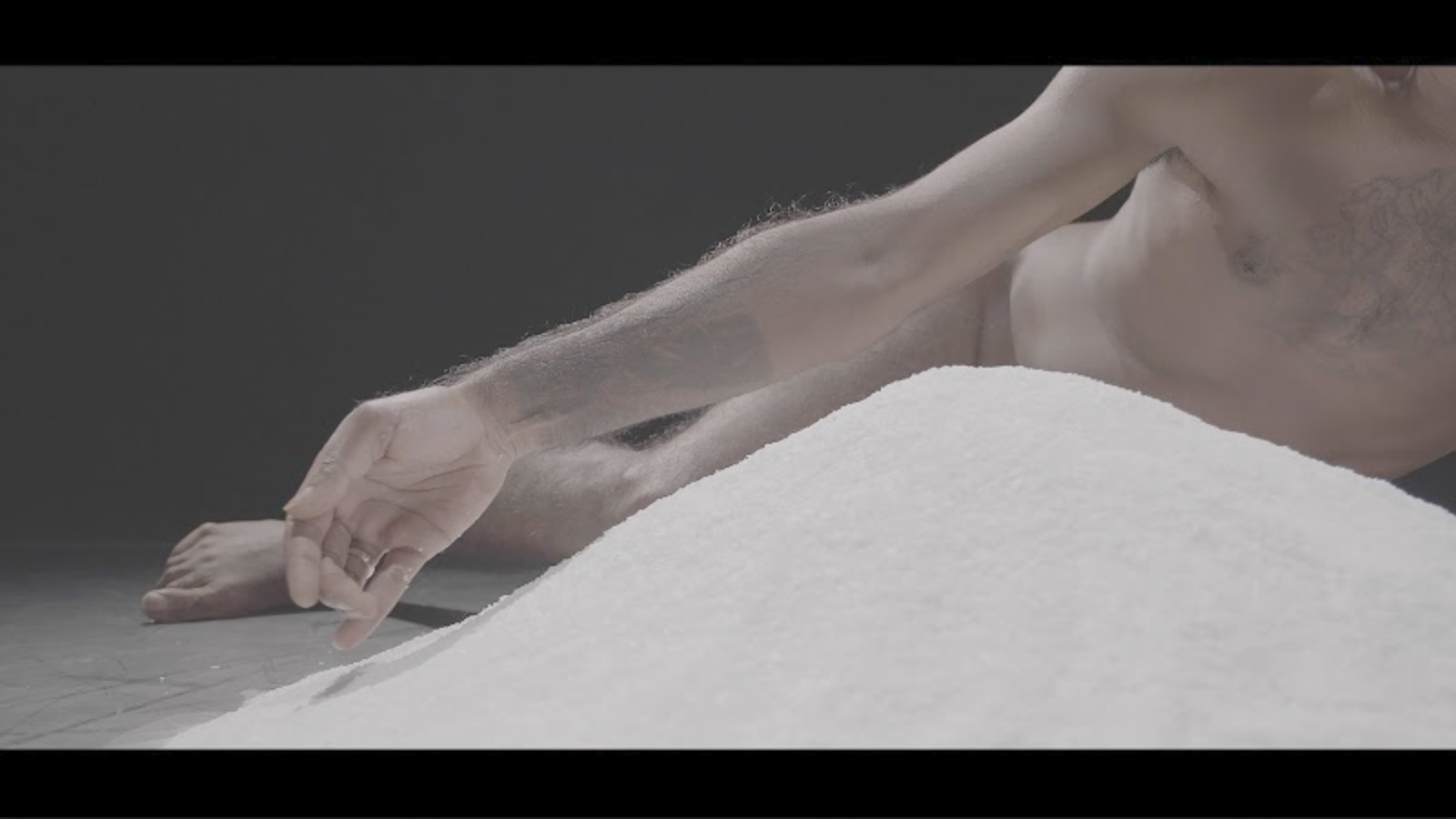
Kama La Mackerel, Your Body Is the Ocean, 2020, video still. Courtesy of the artist
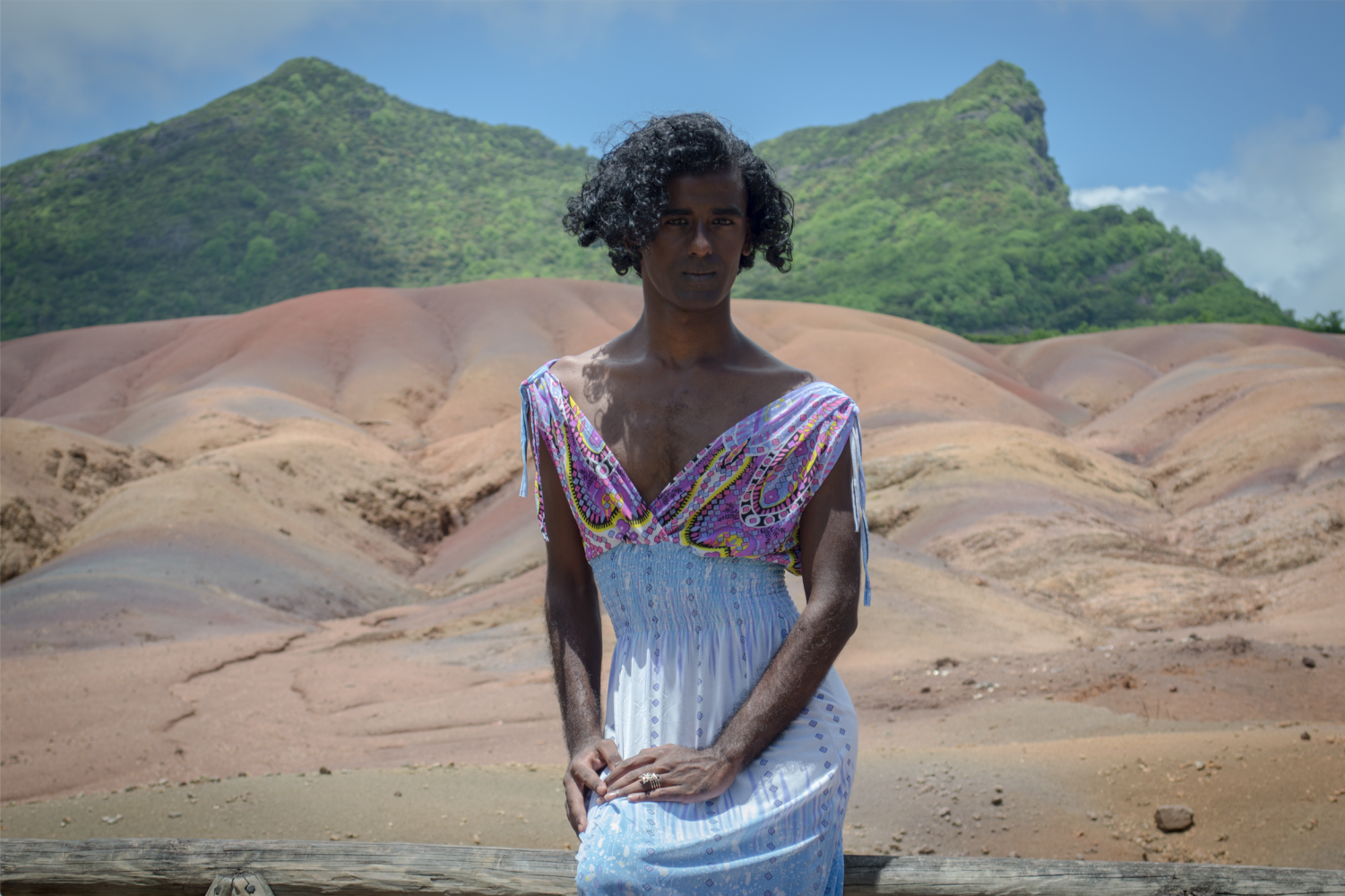
Kama La Mackerel, Breaking the Promise of Tropical Emptiness 2, 2019, inkjet print. Courtesy of the artist
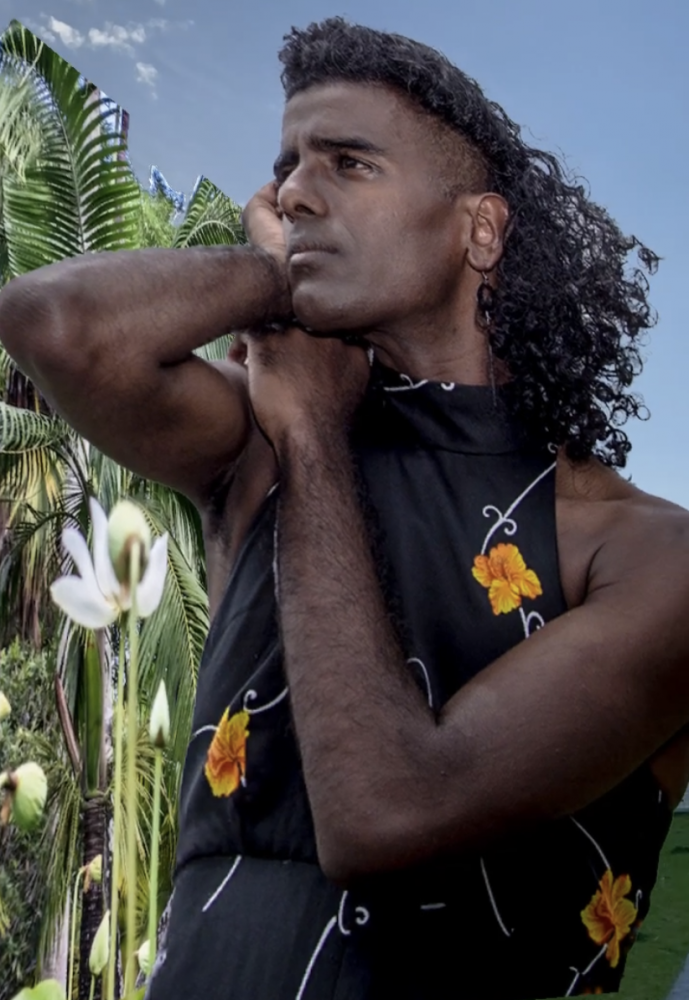
Kama La Mackerel, To lekor se enn zil, augmented reality artwork documentation, 2021.
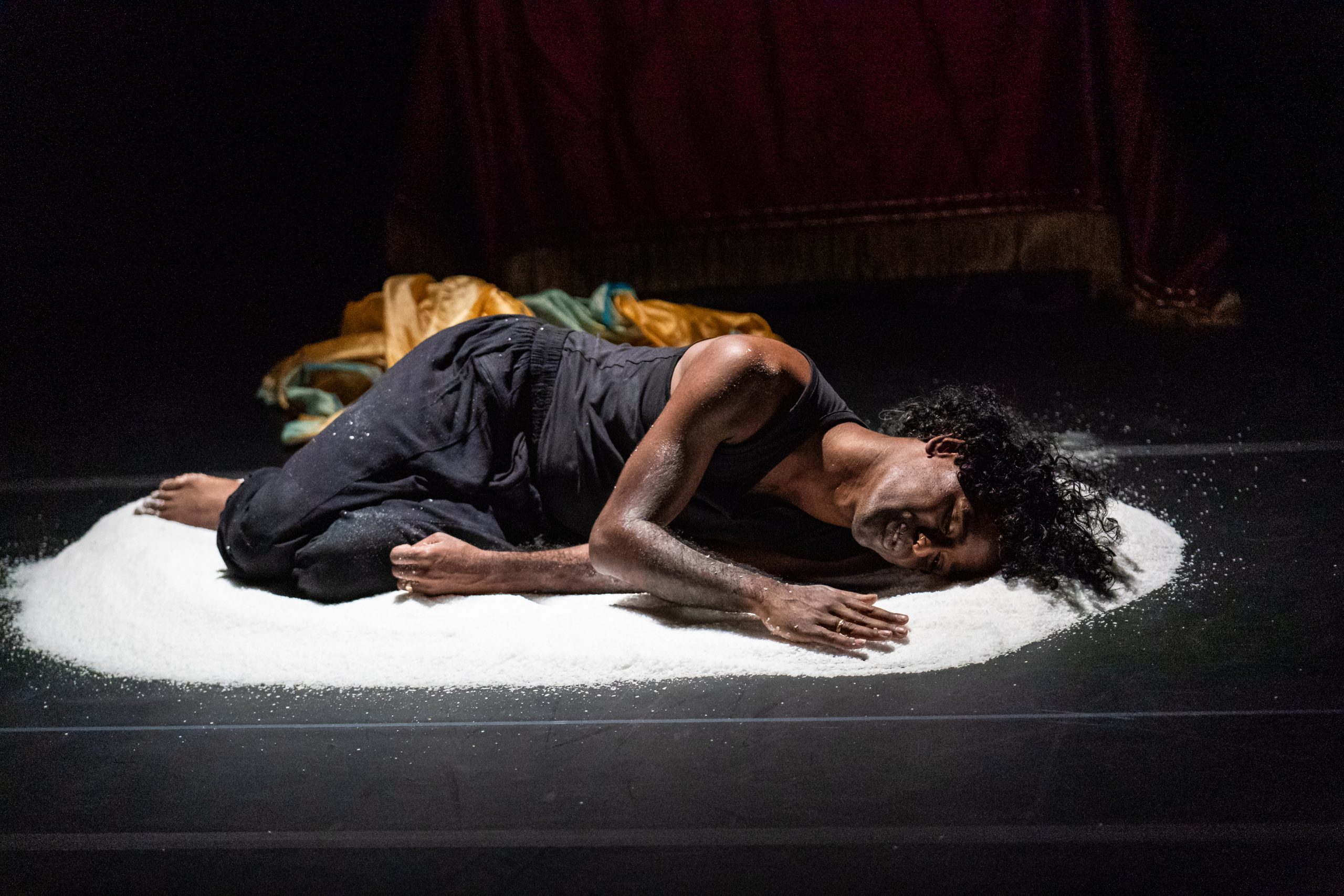
Photo : Vanessa Fortin
Of the Land
In the video installation Your Body Is the Ocean, a part of the series Queering the Is/land Body, La Mackerel creates a dialogue between the body and salt, a natural substance inundating the ocean. Images projected onto a surface of salt in the gallery show, in turn, a body of water, a rocky piece of land, and a trans and racialized body—the artist’s—in communion with a mound of white crystals. First, sparkling water ripples along a shore sprinkled with stones. Then, the satiny skin of a nape, a back, and a thigh appear; we follow its curve, the halo of this Black body contrasting with the bright salt. Through symbolic gestures that evoke both a ritual and an offering, La Mackerel comes into relation with this other body, a saline topography, a small, ephemeral mountain. Through this interaction, the artist engages in a plural reflection on fluidity: that of the ocean, a body of water in constant motion; that of salt, a substance capable of dissolving, but also of crystallizing; and that of a zom-fam (man-woman or transgender in Mauritian Kreol). At the confluence of queer bodies and multiple territories, La Mackerel embodies, poetically and critically, salt water and the stories it bears: the waves of colonization that have crossed it, the millions of uprooted, displaced, exploited people who have drifted on its swells, and those whom it has swallowed up. The artist stages a body-ocean imbued with stories of resistance and resilience. They celebrate the margins, those spaces situated outside the written or the inscribed, like water circulating around an island anchored in the legacy of colonialism.
Liquid Crystals
In the photographic series Queering the Is/land Body, La Mackerel establishes a dialogue between the landscapes of their birthplace, the island of Mauritius, and their own queer and fèm body. The sheen of broad water lily leaves, the thousand hues of sandy desert, and the undulations of burbling water are mixed with their black skin, hair, and the relief of their stature. The project opens a great breach with the stereotyped portrayals conveyed by the biased orientalism through which Mauritius and the people who live there are objectified. The artist’s body acts as a catalyst for a spiritual ancestral and decolonial force and reflects the multiplicity and hybridity that characterize the island. With these images, La Mackerel continues the discussion undertaken in Breaking the Promise of Tropical Emptiness: Trans Subjectivity in the Postcard, a photographic series in which they place themselves in different key tourist sites in Mauritius. Exposing their trans, racialized body in these luxuriant landscapes, La Mackerel deconstructs the exotic setting at the core of the Western fantasy. They debunk the colonial gaze upon “tropical paradises” and the reductive cultural scripts that this vision conveys. Queering the Is/land Body draws upon these very landscapes to reinsert the artist’s queer body into the environment from which they had to flee to give form to their transfemininity. In the space between the body and the territory, ancestral and decolonial knowledge are spoken as La Mackerel turns the body into the appropriate metonymic figure for poetically and performatively addressing our relationship with nature.
Performance Program
my body is home / mon corps est l’océan / mo lekor se enn zil
Kama La Mackerel invokes the voices of their Indo-African ancestors: those who were forced to cross the oceans to work in sugarcane plantations on the island of Mauritius, and those who died at sea and never made it to the shores. With this ritual-performance, La Mackerel honours the salt of those who came before us and those yet to come.